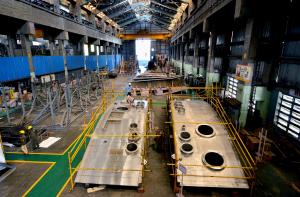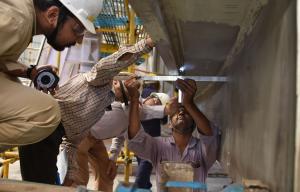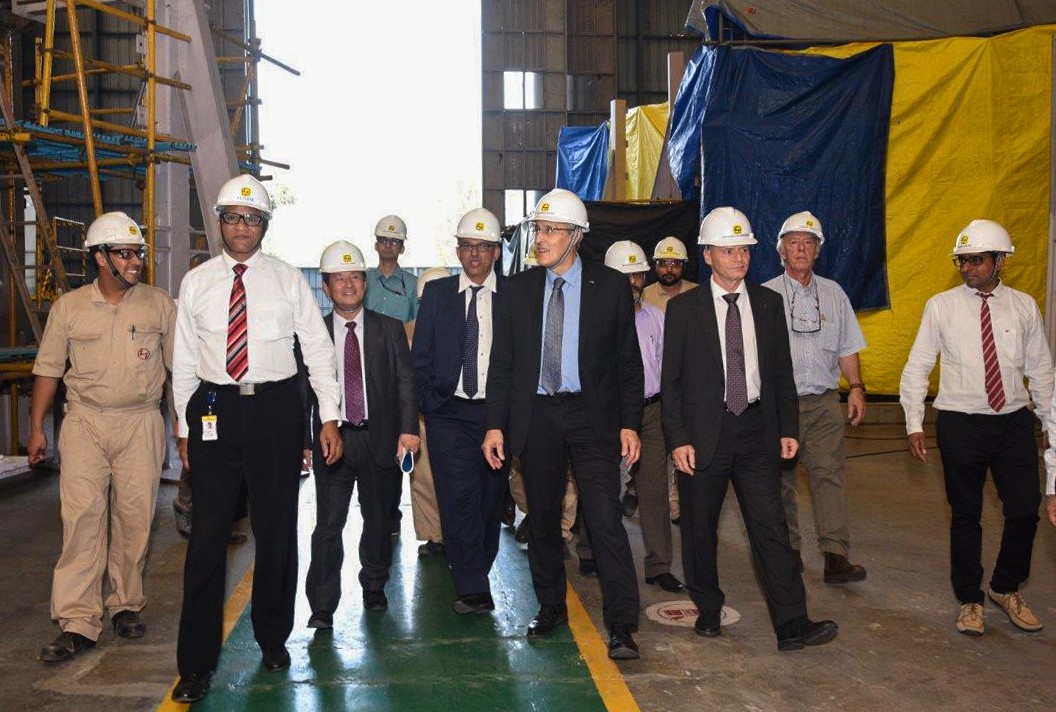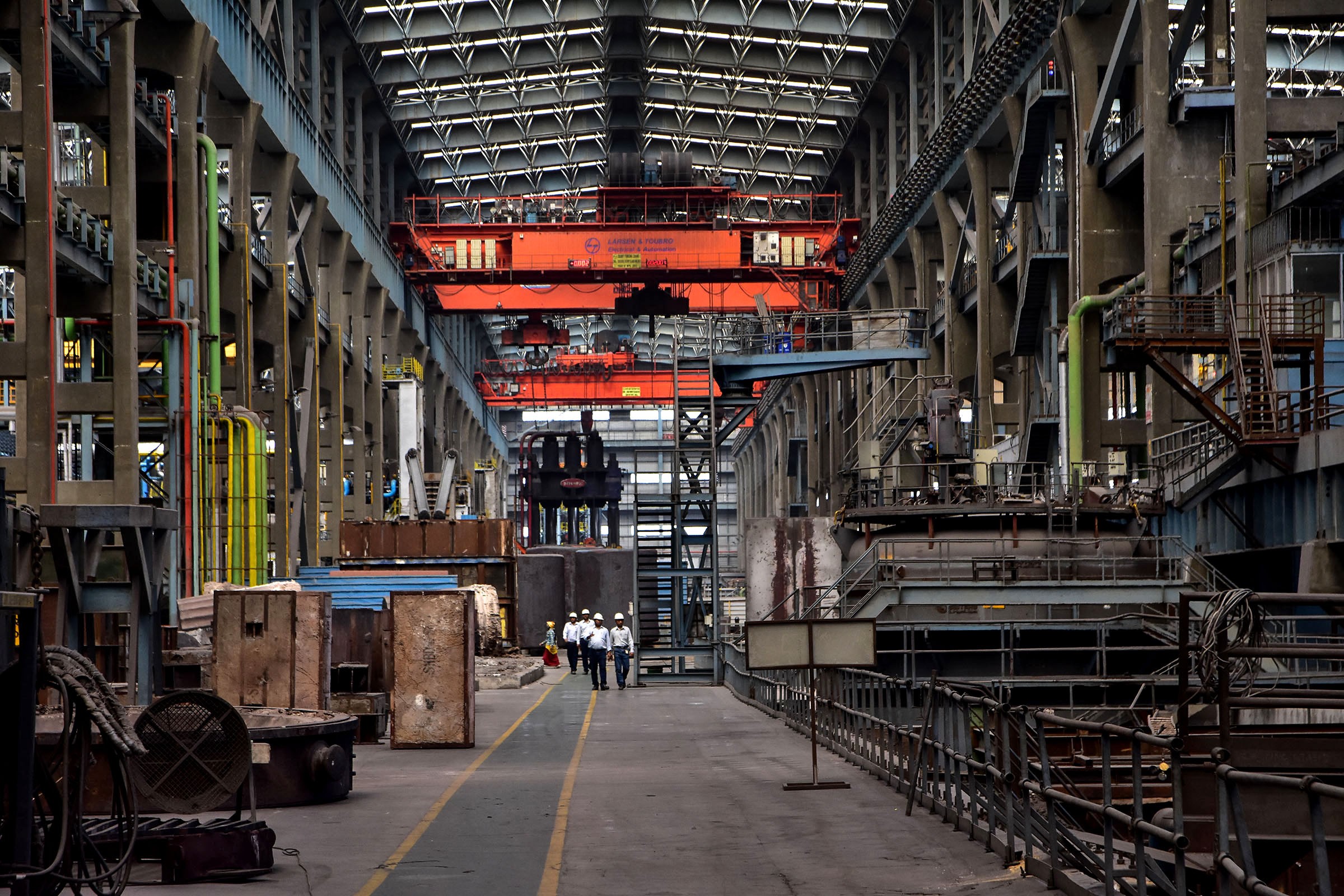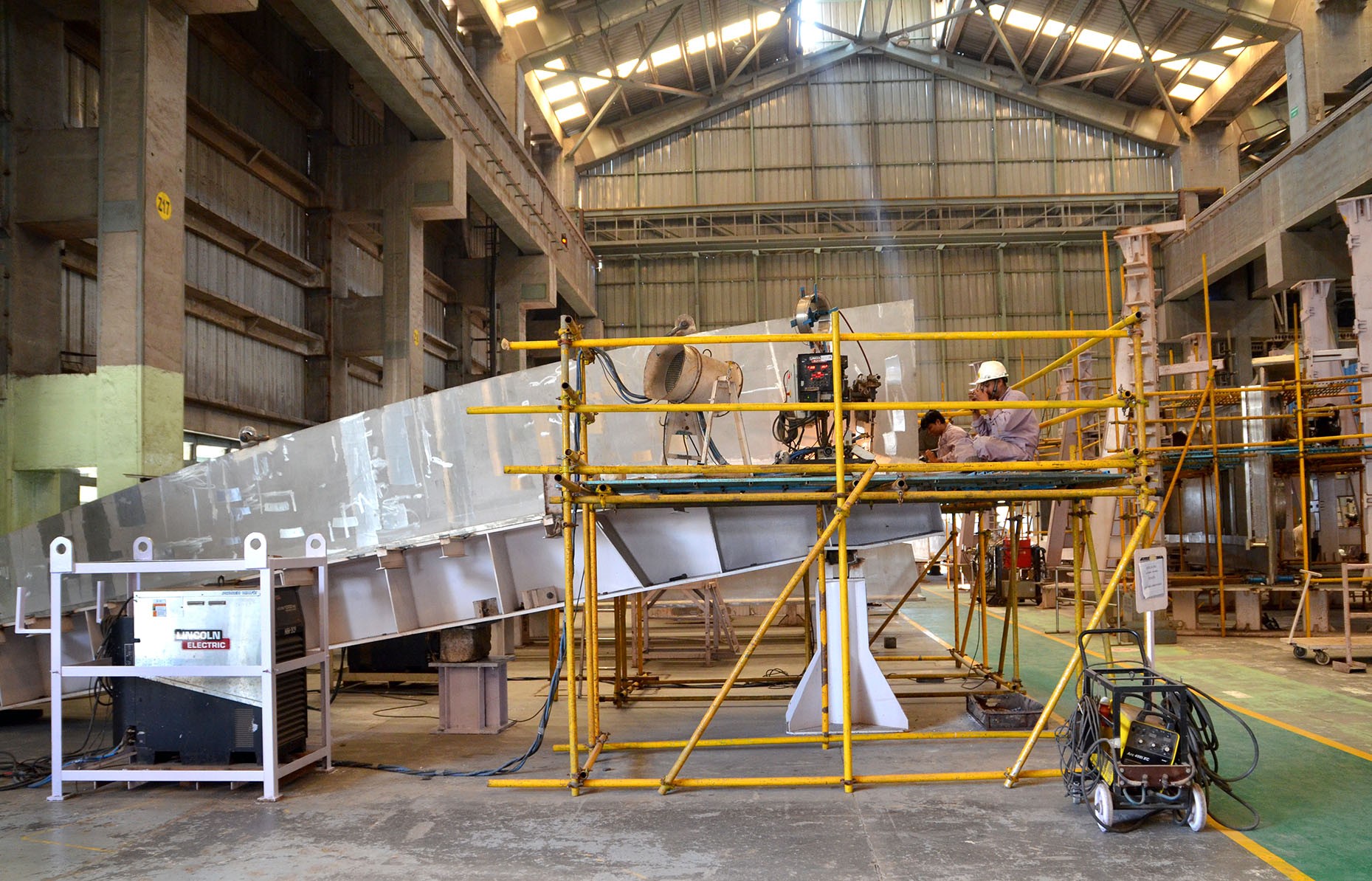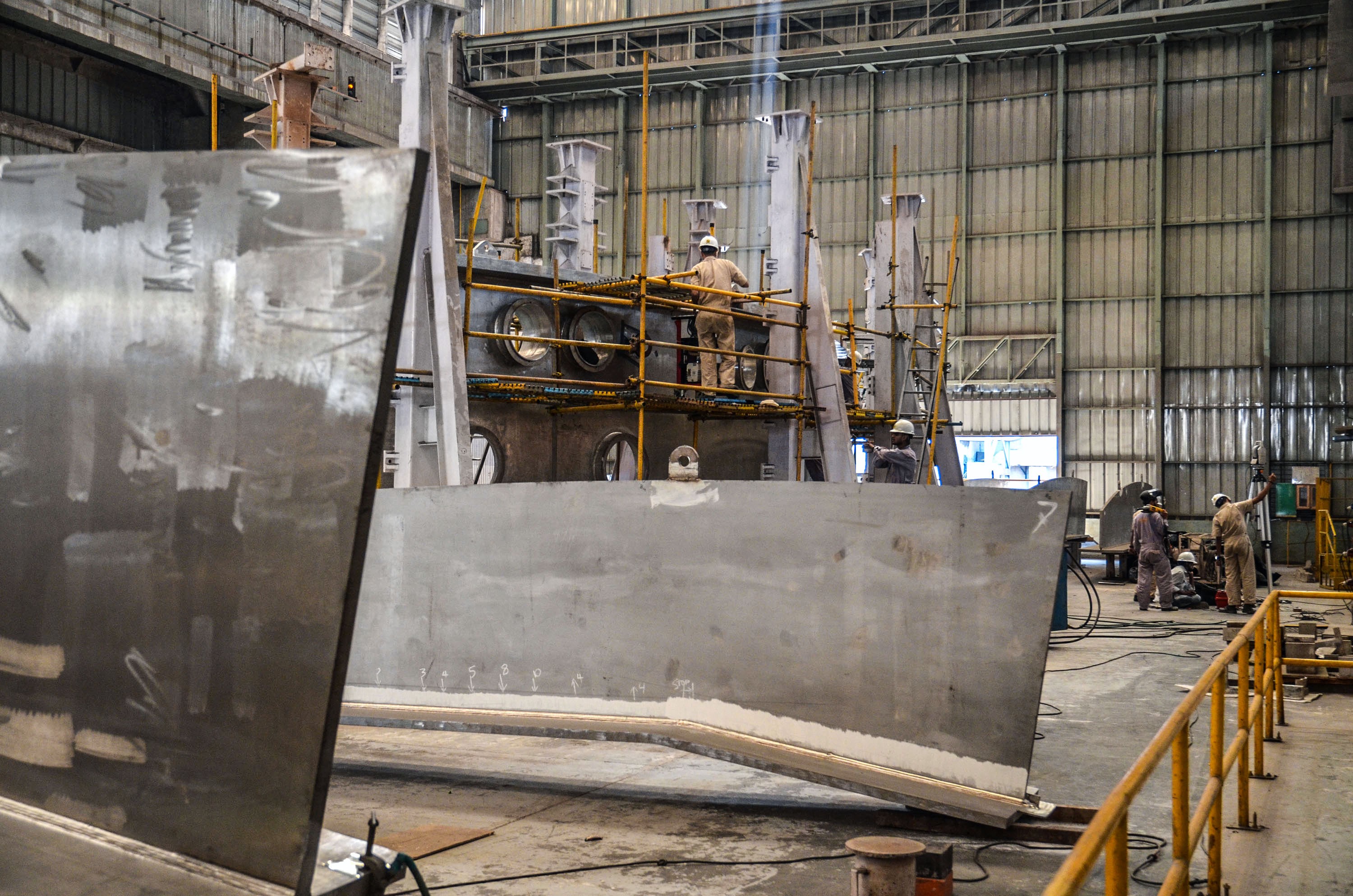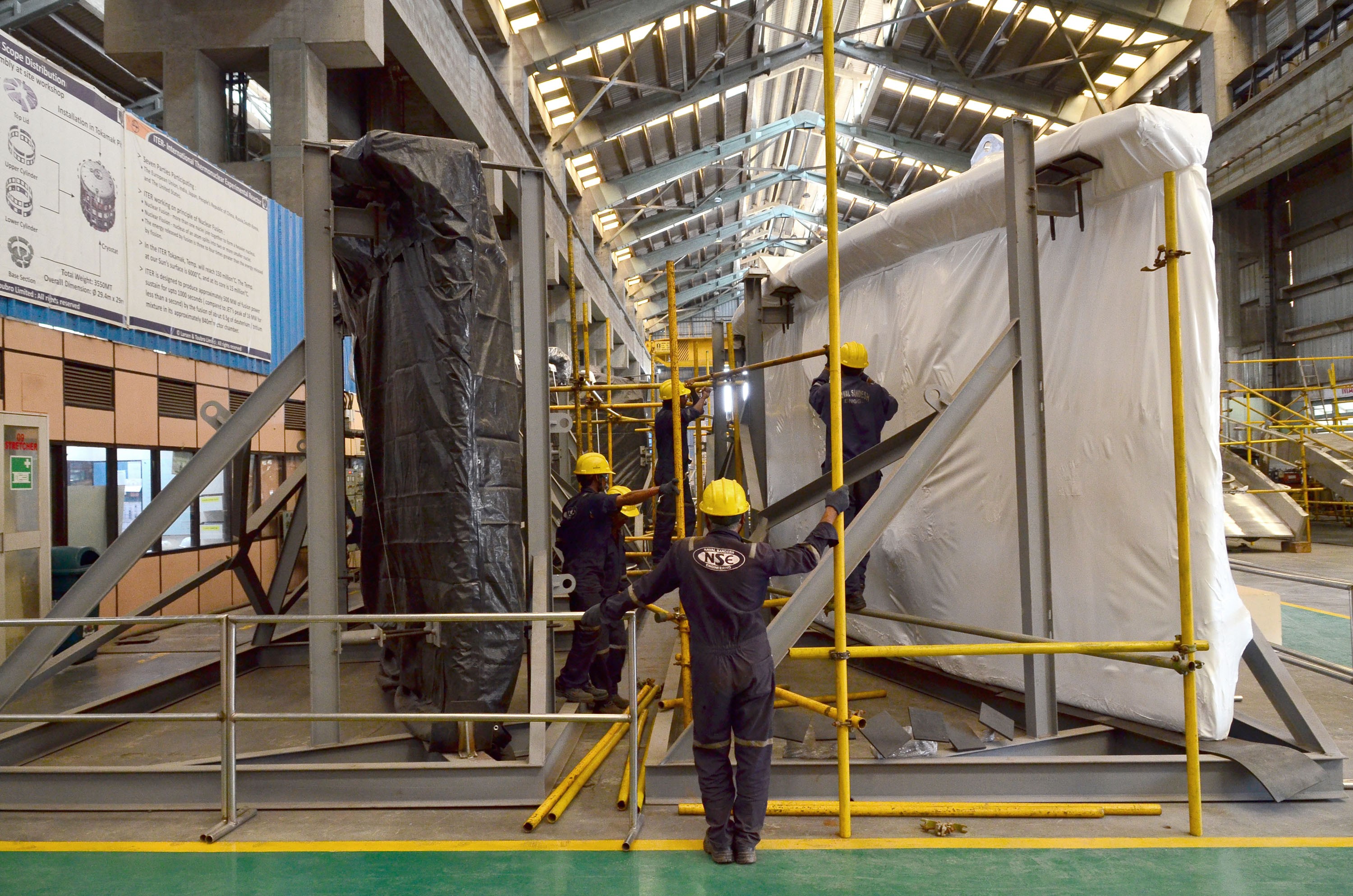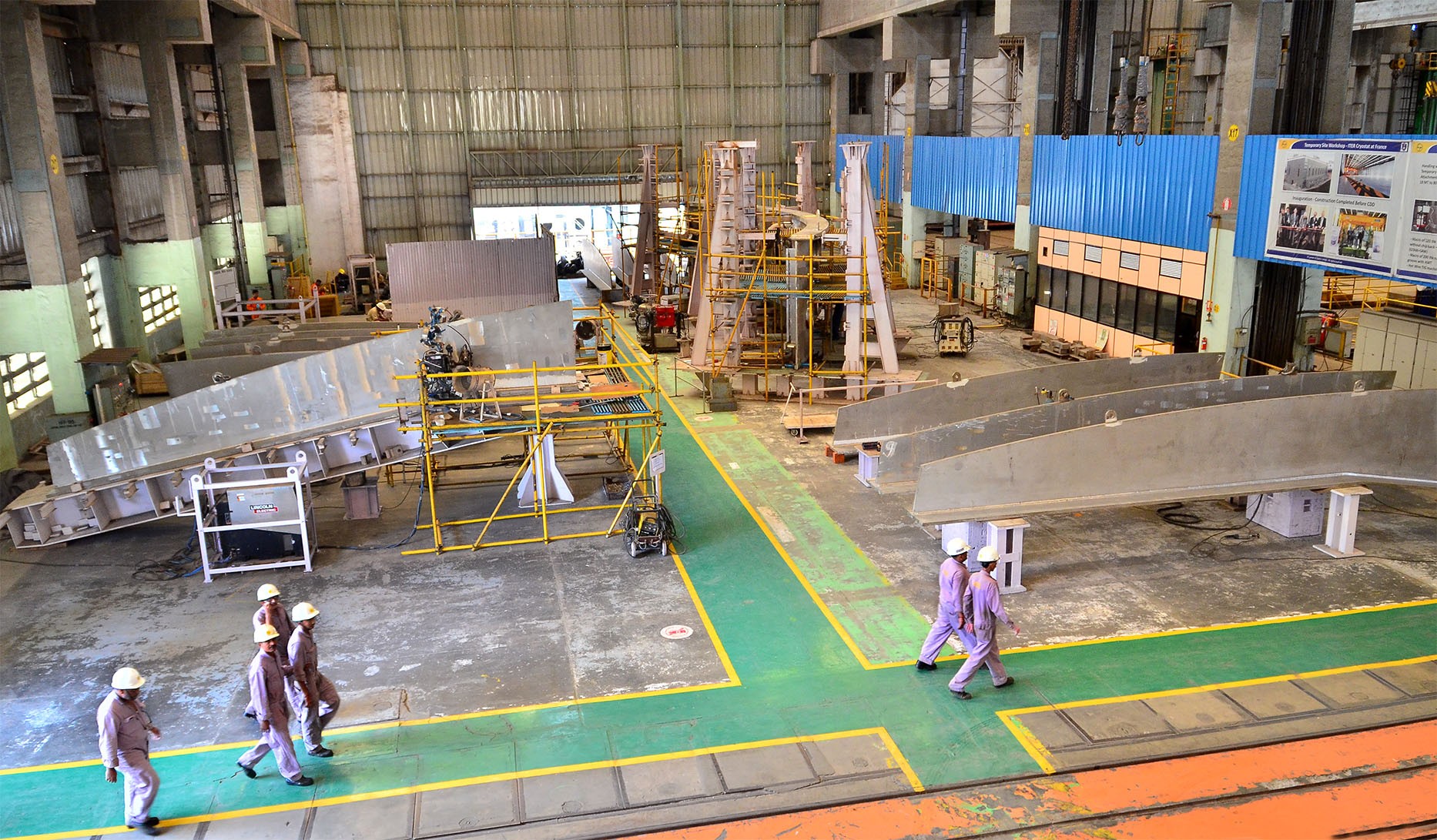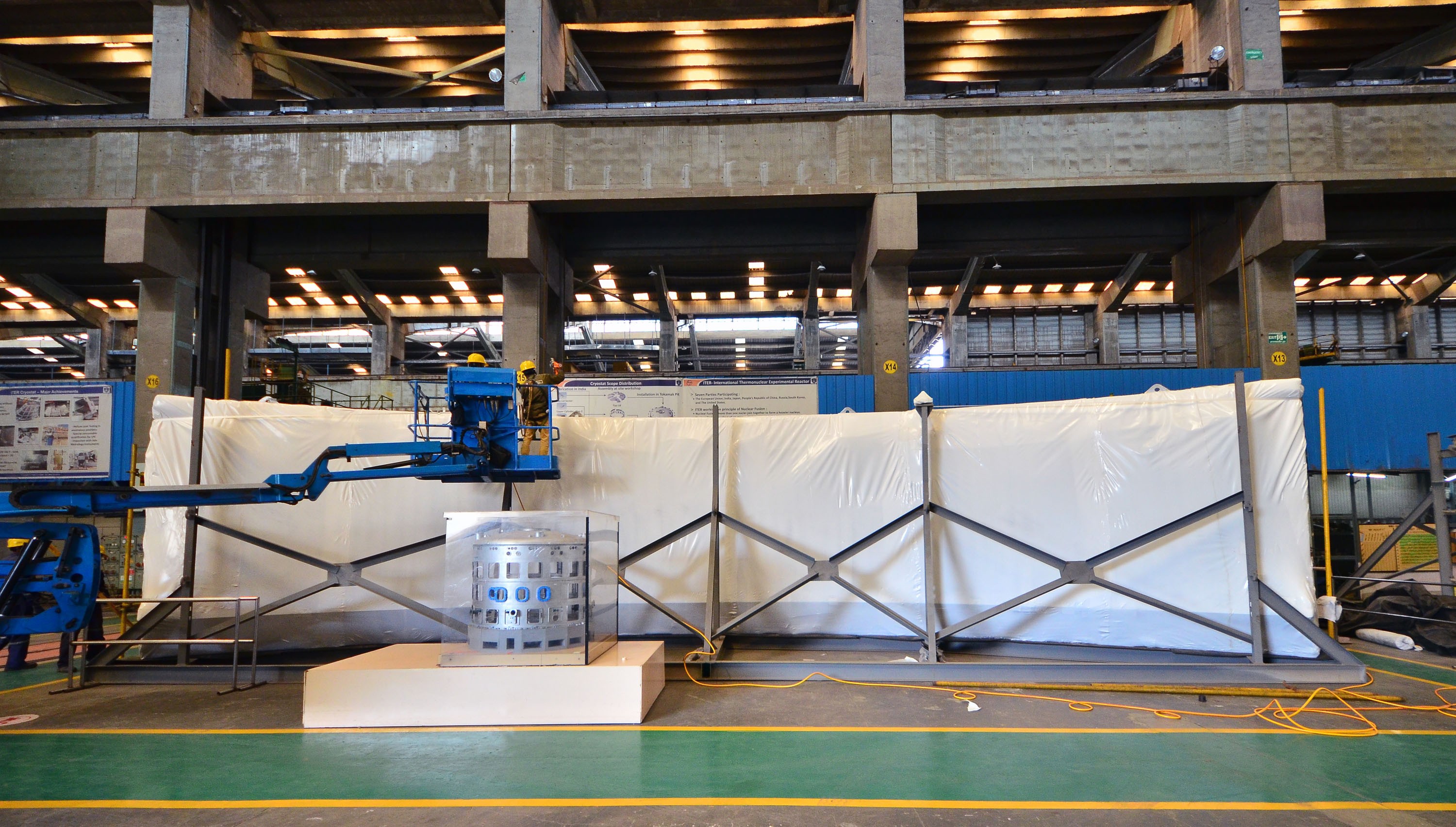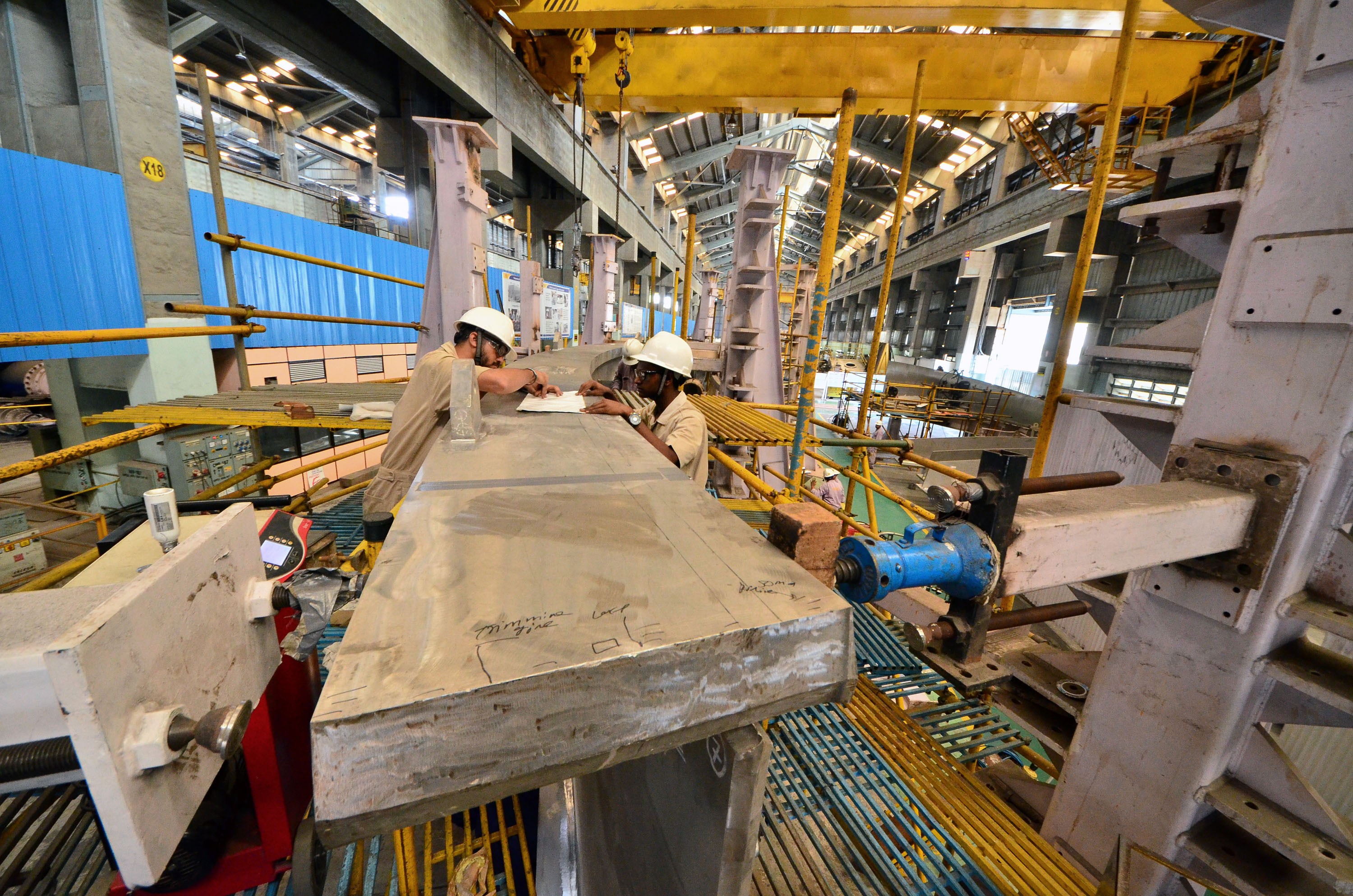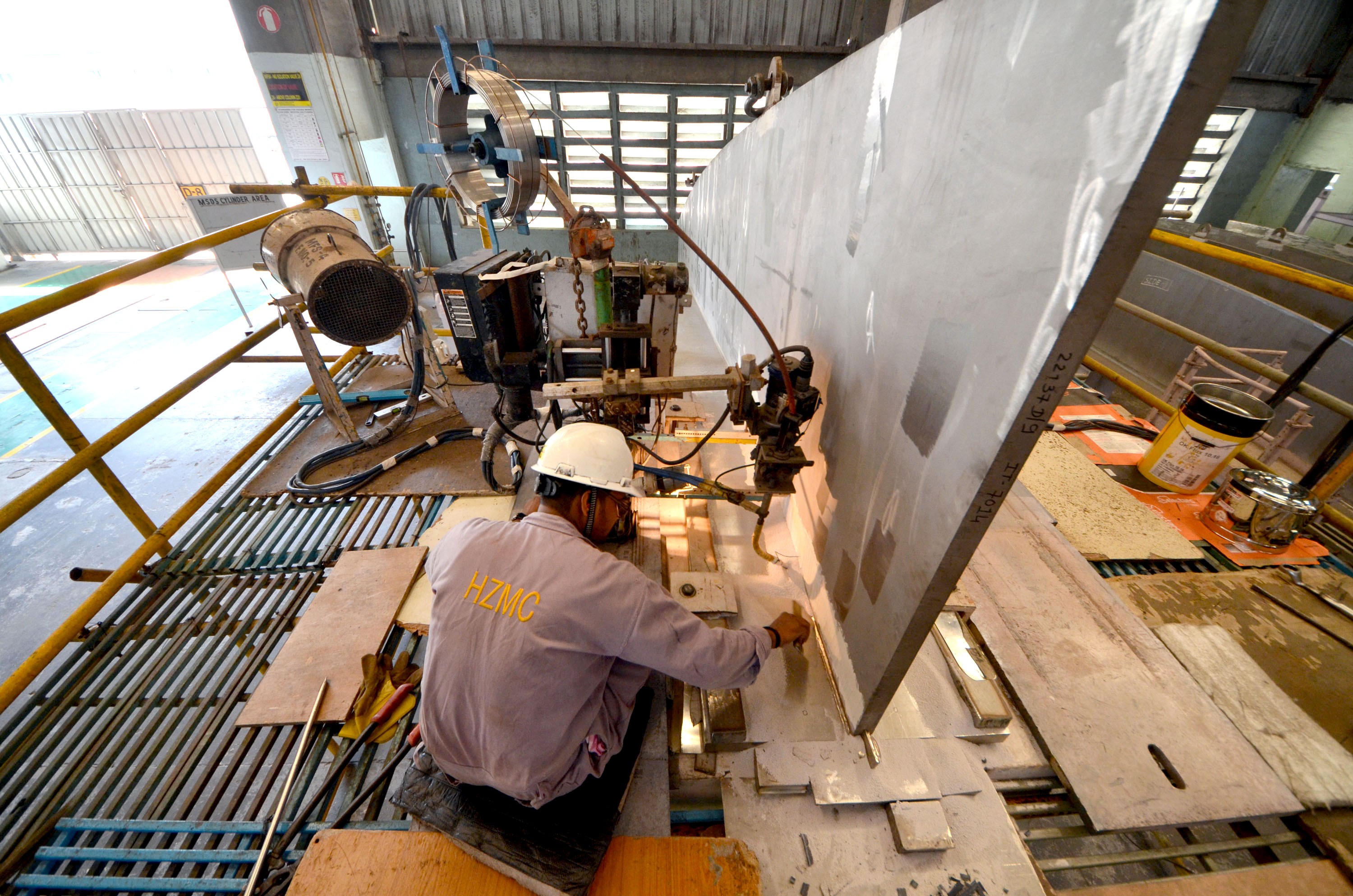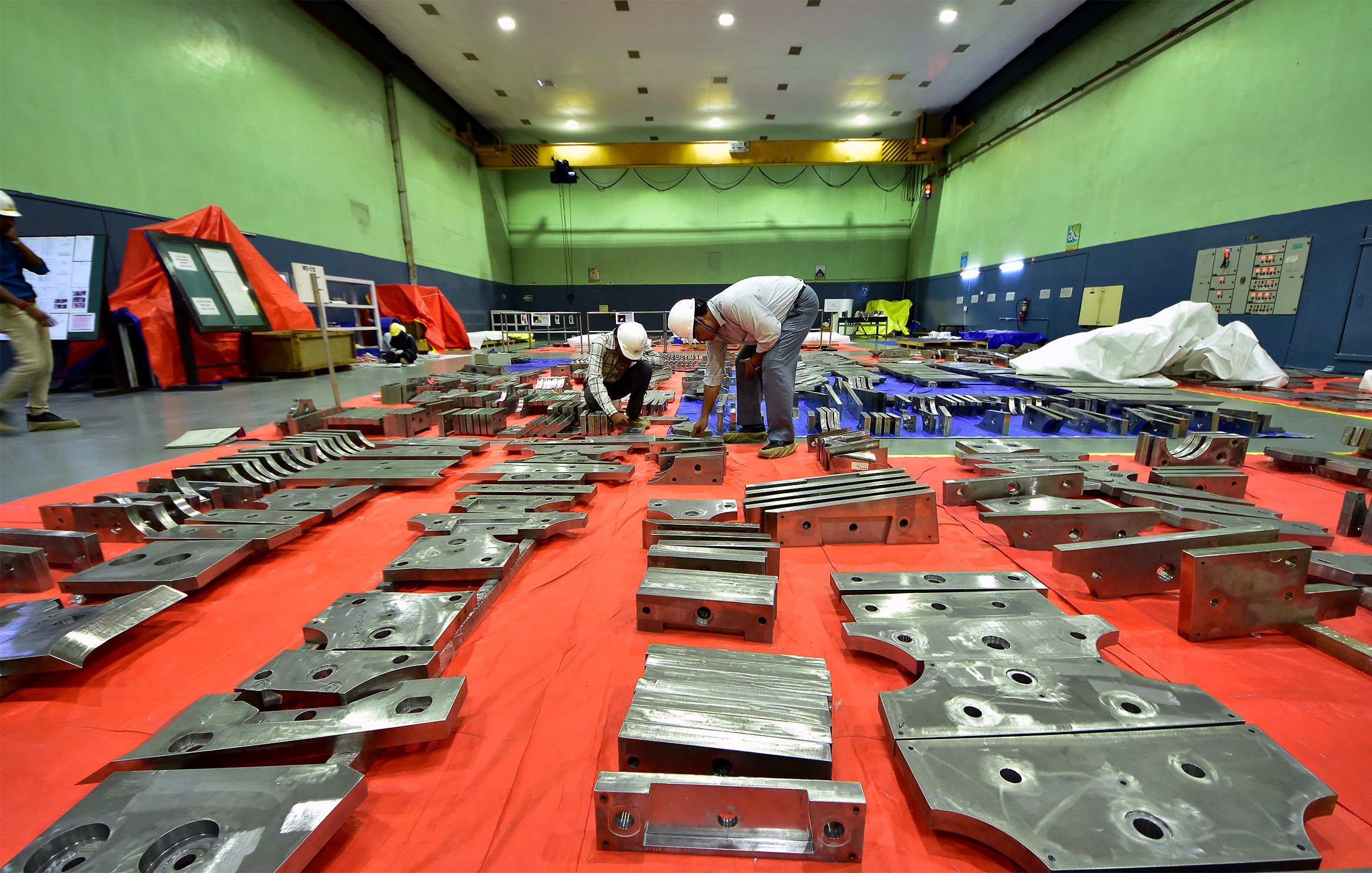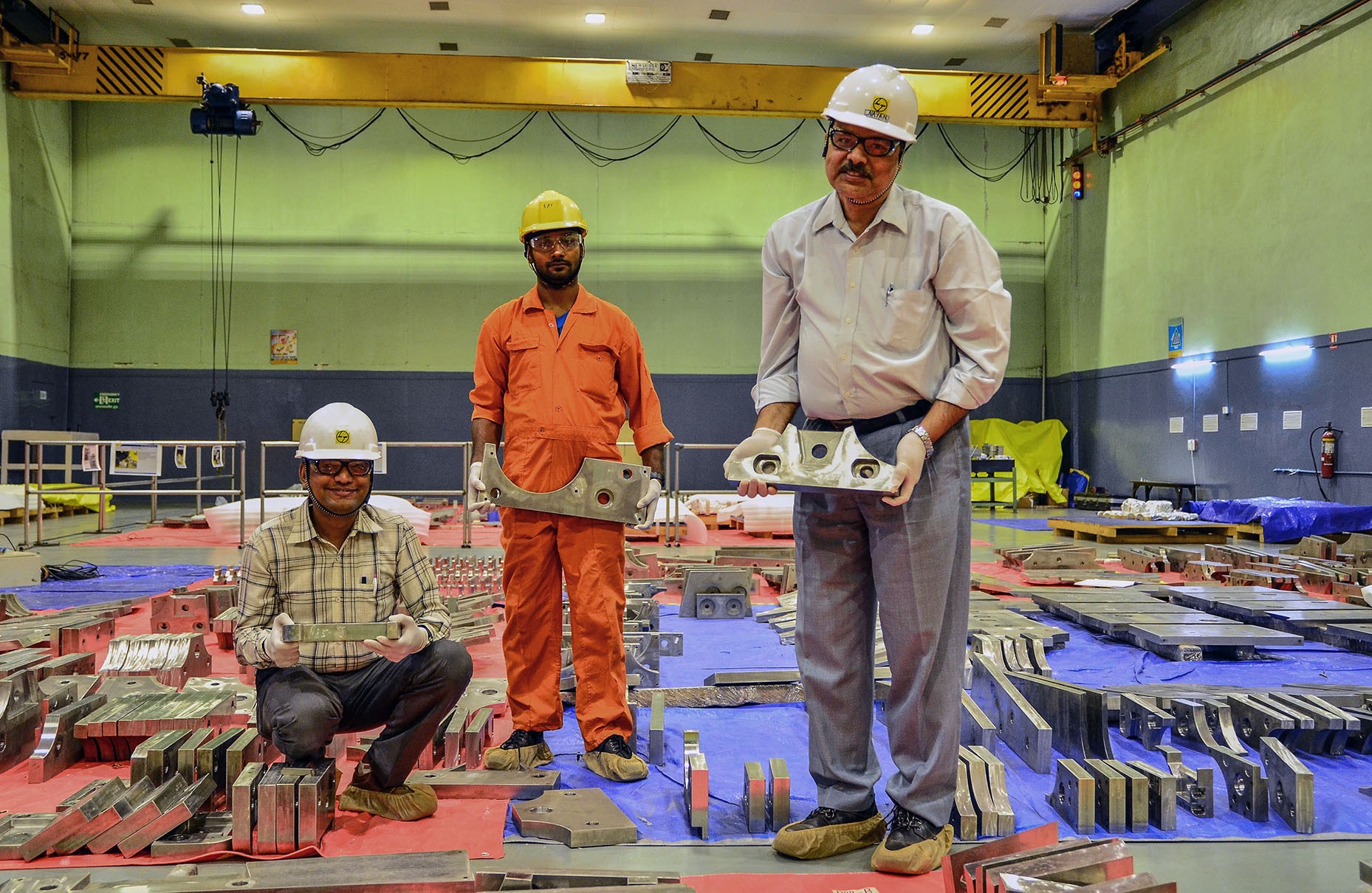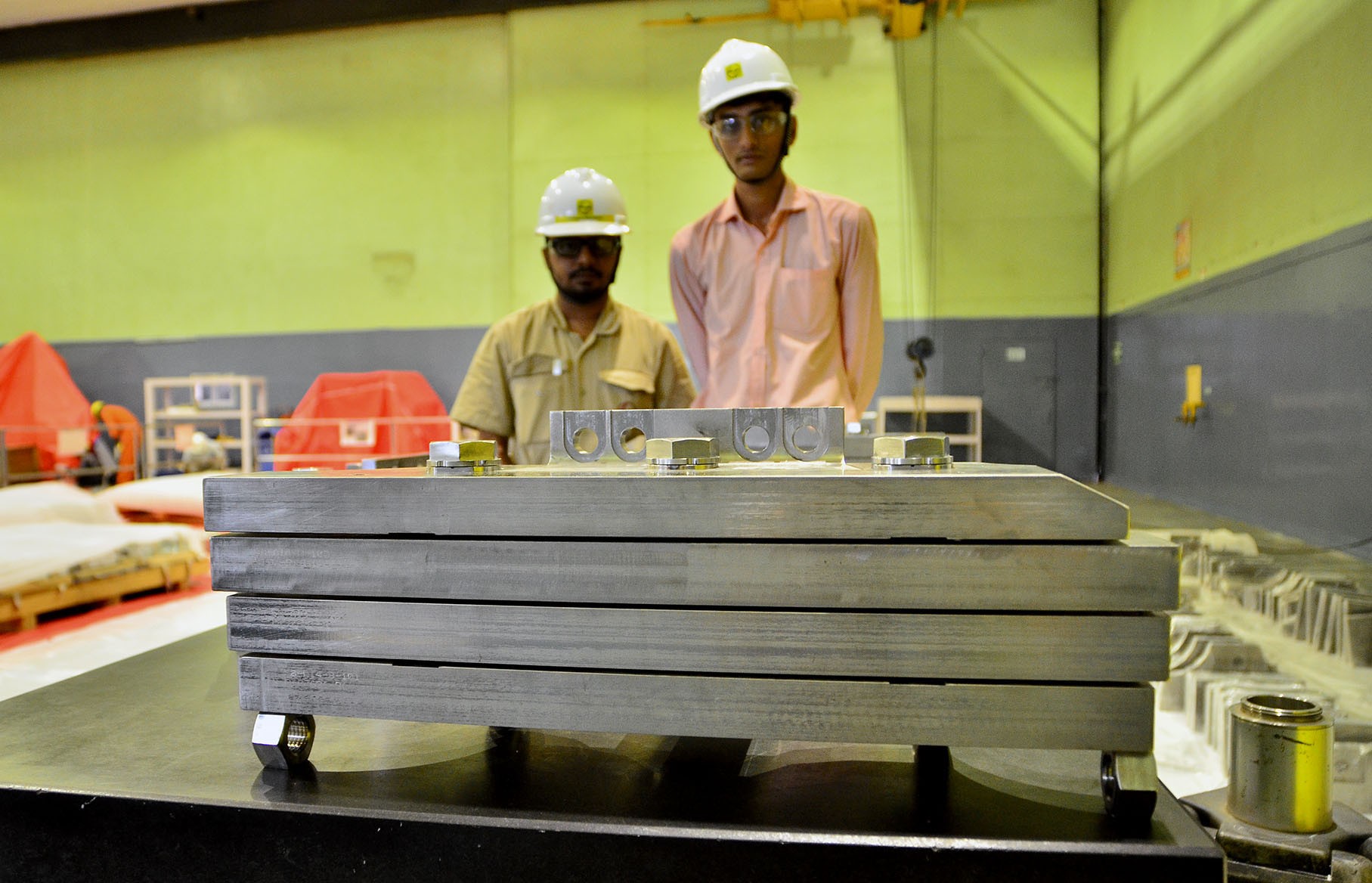Since late 2015, segments for the ITER cryostat's base section and lower cylinder have been successively forged, machined, finalized, shipped to the ITER construction site, and assembled and welded in the onsite
Cryostat Workshop.
In December 2013, as the first mockups were produced to demonstrate and validate welding and manufacturing sequences and techniques, Madhukar Kotwal, then president of Larsen & Toubro Heavy Engineering, told
Newsline that despite the company's accumulated experience in manufacturing nuclear and space components, the ITER cryostat was so "special" that it presented unprecedented challenges, both technical and organizational.
Five years later, the challenges have been met and overcome and the manufacturing of the segments for the "huge assembly" of the ITER cryostat is nearing its end.
In the east campus, inside Medium Fabrication Shop #4, work is now underway on the last two orders that Larsen & Toubro is filling for the ITER cryostat: seven segments of the 430-tonne upper cylinder are packed and ready for dispatch; another two are undergoing finishing works and inspections; a segment prototype for the 655-tonne top lid is in the last stage of fabrication; and various tasks are being performed on the "ribs," "flanges," "knuckles," and "crown" that make up a top lid segment (see further technical detail in the photo gallery below.)
Although 7,000 kilometres and three and a half time zones stand between the Larsen & Toubro teams in Hazira and those on the ITER worksite, communication between them is constant. "We have a conference call every single working day," says Chirag Patel, the Larsen & Toubro project manager for the ITER cryostat and in-wall-shielding (see box). "And we will soon be implementing Wi-Fi-connected viewing goggles that will enable us to have a better visual assessment of the ongoing works in the Cryostat Workshop at ITER."
In the summer of 2019, the 12 top lid segments will be shipped to ITER, marking the end of a formidable industrial venture that has spanned two continents and involved hundreds of specialists in both Hazira and at the ITER site in Saint-Paul-lez-Durance.

